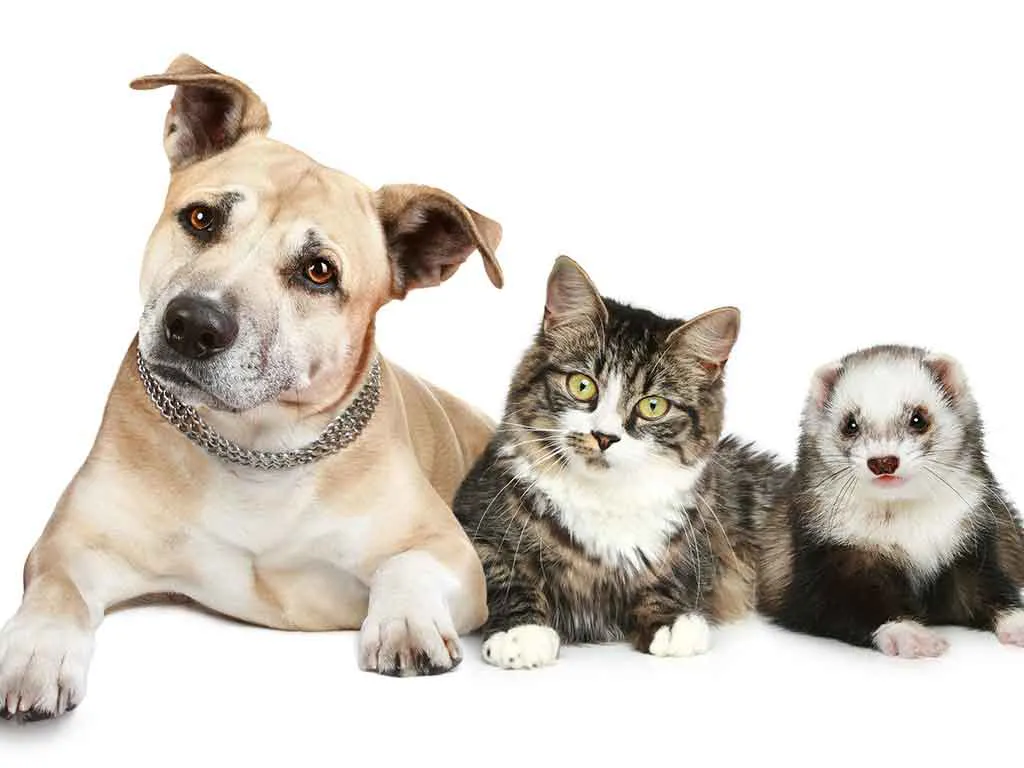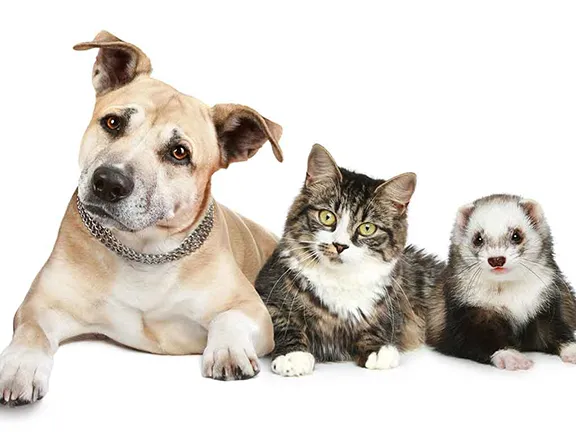The Draft Law and Protection of Animal Rights in Spain, also known as Animal Welfare Laws, was published in the Official State Gazette on Wednesday 5th January 2022
By Nick Nutter | Updated 22 Mar 2023 | Andalucia | Living In Andalucia |
Login to add to YOUR Favourites or Read Later


The Draft Law and Protection of Animal Rights in Spain was published in the Official State Gazette on Wednesday 5th January 2022. It should come into force on the 25th January 2022. The new law will affect all owners of dogs, cats and ferrets.
The law is part of a series of measures designed to recognise animals as legitimate members of the family and promote animal rights in Spain.
As from Wednesday 5th January 2022, animals in Spain will be considered to be sentient beings, meaning that they can no longer be seized, mortgaged, abandoned, mistreated or removed from one of their owners in the case of a separation or divorce. Livestock animals are not considered ‘companion animals’.
- In divorce proceedings, judges will be able to:
- Award joint custody to pets taking into account ‘the new needs of the companion animal’
- Dictate maintenance costs for the maintenance costs of the animal and rule on which spouse has custody if they cannot reach an agreement
- A spouse may be denied custody if they have been convicted of animal abuse or neglect
The law also states that, if a person finds a lost animal it should be returned to its owner unless there is evidence of neglect or abandonment in which case it should be handed over to the authorities. If the animal is returned to its owners, the finder is entitled to compensation for its care. It is estimated that between 150,000 and 300,000 animals are abandoned in Spain every year.
Pets can also now be included in wills. But if they are not, they will be handed over to inheritors who reclaim them. If this is not possible, they will be given to either an administrative body or centre that collects abandoned animals, until the inheritance procedures can be established. If none of the heirs want to take charge of them, the administration can hand them over to a third party for their care and protection.
The new Animal Protection Law includes a number of general obligations such as keeping pets integrated within the family unit, well groomed and washed, preventing uncontrolled breeding, never keeping pets alone inside vehicles, cleaning up their faeces and other common sense advice for the majority of pet owners.
The bill also includes a number of new important prohibitions, such as a ban on ear cropping, the forbidden sale of most animals in pet shops and other punishable offences.
Pet owners, (at the moment, pets include dogs, cats and ferrets), in Spain are already required to have a health booklet or Cartilla Sanitaria, issued by a chartered veterinarian, that shows the animals vaccination record. Dogs and cats also need a microchip that records a registration number and the contact details of the registry. The registry hold the details of the owner of the pet. Finally, the animal also needs proof that rabies vaccines have been administered. If you travel outside Spain with your pet, then you will also need a Pet Passport. Veterinarian clinics are responsible for ordering these documents.
The Animal Rights Law lays the foundation for a series of measures that are intended to be introduced in 2022.
In addition to the documentation mentioned above, it is proposed that pets will also need a National Pet ID, the so called ‘el DNI Animal’. The aim is to build a national database of pets in Spain. The pet ID will contain basic information relating to the animal, such as its date of birth, the number of vaccines it has had or any mistreatment carried out by its owners. There is a suggestion that the information will also include a photograph of the animal.
The draft bill also includes the requirement for people to do a training course before being allowed to adopt a pet, which teaches budding pet owners how to handle and care for their furry ones. It is likely that the course will be ‘on line’.
If the draft law is passed, puppies and kittens will no longer be sold from pet stores. They will only be available from animal shelters and professional breeders.
It is proposed that a household will be allowed no more than five pets. This measure will not be applied retroactively.
All pet owners will be required to take out civil liability insurance for their pets.
As each of the proposed measures are introduced, this article will be updated.
Here are the actions that became law on the 18th February 2022 which are forbidden under Spain’s new Animal Protection Law:
Mistreating or physically abusing animals.
Treating animals negligently or undertaking other practises that can cause them suffering, physical or psychological harm or even death.
Abandoning animals in either indoor or outdoor spaces.
Mutilating or carrying out cosmetic bodily modifications on animals, with the exception of operations necessary to ensure their well being or for sterilisation purposes, which must be accredited by a veterinarian’s report.
Using an animal for fighting purposes or training them to be aggressive.
Using animals for artistic or commercial purposes as well as other public spectacles that cause them anxiety, suffering or pain.
Breeding for genetic selection purposes that could result in health problems for the animal, or any unauthorised breeding of pets
Selling or exhibiting animals in shops for commercial purposes (except fish). The transfer of animals, whether at a price or free, has to be carried out directly with the breeder or shelter without any intermediaries seeking a profit. The sale of animals by unlicensed breeders or regular pet owners is not allowed.
Donating or adopting an unidentified animal. The free transfer of ownership must be reflected in a contract, along with the animal’s identification details.
Using animals in advertising without prior official permission.
Using collars, leashes or spikes that strangle the animal or electric devices that can cause harm to the animal.
Tying an animal to a moving vehicle.
Using domestic pets for animal or human consumption.
Euthanising an animal without prior permission from a vet and without any other purpose than avoiding its suffering.
Using an animal for unsuitable or arduous work based on the animal’s traits.
Using an animal for begging purposes.
Bird trapping, especially finches.
Feeding pets carcasses, entrails or offal from animals that haven’t undergone the correct health checks.
Gifting animals as a reward, prize, in raffles or in sale offers.
Permanently keeping pets on balconies, terraces, attics, storage rooms, basements, vehicles or other similar spaces.
Permanently releasing domestic pets into the wild or other environments in nature.
Disposing of a dead animal’s body without prior identification or notification to the relevant authorities.
Using any device or mechanism designed to restrict their mobility unless prescribed by a vet.
Leaving an animal unsupervised for three consecutive days. Depending on the type of dog breed, this period should not be longer than 24 consecutive hours.
Culling feral feline colonies without prior authorisation from local governments and carried out by anyone other than a vet.